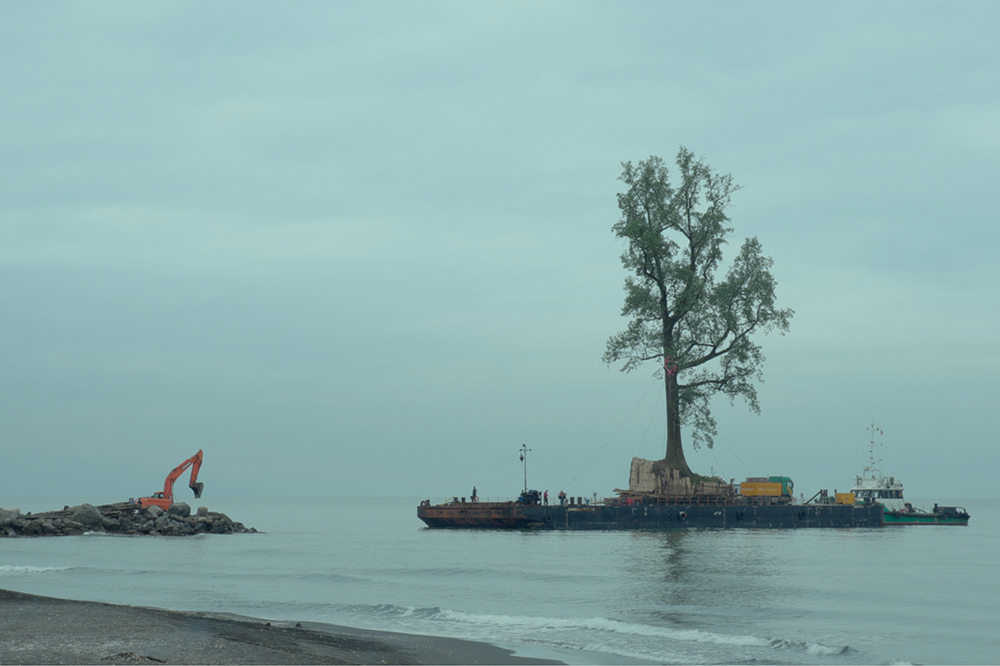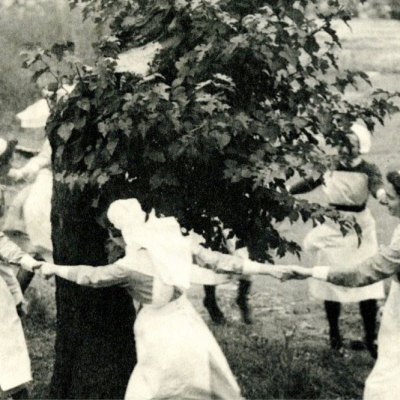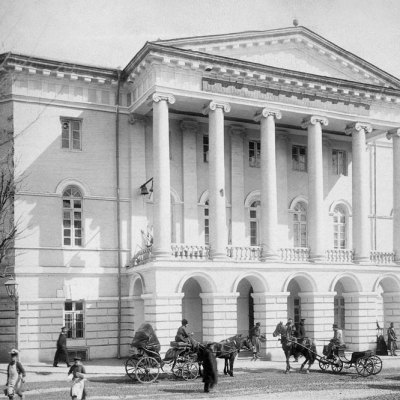You would be forgiven for thinking that a film about a fabulously rich recluse uprooting giant trees and then floating them across the sea to imprison them in his garden would be a work of fiction. But, rather than a Lorax-like fairy tale to warn children about the danger and folly of going against nature, Salomé Jashi’s masterful Taming the Garden (2021) is an unflinching documentary.
It opens with a bizarre sight that became familiar on Georgia’s Black Sea coast between 2016 and 2019: that of a colossal, centuries old tree floating on a barge on the open sea. A reported 200 trees made this watery crossing, dug up from their homes on the lush, subtropical hillsides of western Georgia, dragged on massive lorries to specially constructed piers, then tugged down the coast to the palace of billionaire oligarch Bidzina Ivanishvili, the former prime minister and de facto ruler of Georgia.
It is these majestic trees – limes, planes, oaks, eucalyptus – that are the mute protagonists of Jashi’s film, as she documents the herculean labours undertaken to move them. Whole roads must be dug out of mountains, hillsides turned to rubble to make piers and, most ironically, hundreds of trees must be cut down to get at the one the billionaire has set his heart on. It’s a bemusing and disturbing spectacle that leaves the workers entrusted with digging out the massive trees asking the same questions as the viewers: why is he doing this?
If the trees are the heroes of the piece the villain is Ivanishvili, who haunts the film like a malevolent spirit. Spoken about in hushed terms (his name is not mentioned until half an hour into the film), some villagers warn each other not to say anything about ‘him’ on camera, while others curse him. ‘He forced me to do something bad,’ says one villager who sold his tree for $40,000, a life-changing amount of money in rural Georgia. Other villagers are happy with the new roads the tree collection has brought. ‘Who gives a fuck about trees?’ one asks.
From Taming the Garden (dir. Salomé Jashi). Courtesy Dogwoof
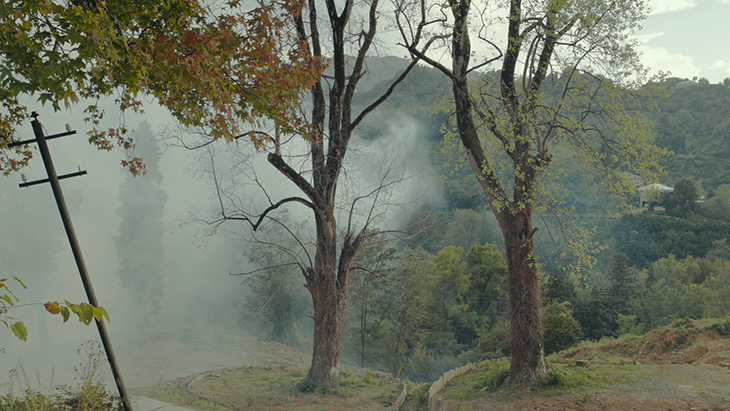
Although this is on some level a political film, Jashi never tells us what to think. There is no voiceover, indeed there is no explication of any kind. Instead, Jashi’s powerful authorial voice rings out in the way she interweaves the jaw-dropping footage of the tree removals with the testaments of the humans left behind in their wake. Jashi has made more journalistic films in the past – The Leader is Always Right (2010), for instance, took aim at nationalist youth camps arranged by Georgia’s previous government – but here she combines her skills as a documentarian (how did she manage to get on to the ship with the trees?) with those of an artist. The film has a touch of the magical, reminiscent of her debut short, Our Helicopter (2006), about a mountain family’s repurposing of a Russian helicopter downed during the Chechen War.
Here, we follow the villagers, who are amazed and aghast in equal measure, as hundred-foot-high trees trundle through the streets. ‘It provided shade for all the neighbourhood,’ says one tearful old woman. ‘Imagine all the children who played under it.’ Another seller, an old man whose grandparents planted the tree that is about to set sail, sits next to its trunk and has his first cigarette for 30 years. It is an upsetting, funereal scene.
‘That guy must really like trees,’ says one worker, reflecting on the Pharaonic project Ivanishvili has undertaken. But, as Jashi’s film makes clear, he really must not like trees at all. It is the villagers who really like trees. It is they who weep, who are riddled with guilt, and who have to live with a pockmarked, devastated landscape after their trees have gone. Ivanishvili, on the other hand, is a sylvan vandal, driving a bulldozer through the spirit of Georgia’s environmental protections, unabashedly felling entire hillsides in pursuit of his hubristic and quixotic ambition. The finest tree in the movie, an oak that is estimated to weigh 1,000 tons, must be mutilated to get it out, half its huge crown cut away. To win paradise, Ivanishvili must first destroy it.
In the film’s closing scene we enter the tamed garden Ivabishvili has created. მოთვინიერება (motvinieba), the film’s Georgian title, has the sense of pacifying, of man bending nature to his will, and that is certainly what Ivanishvili has tried to achieve. It is a depressing sight. The trees, once the pride of their villages, are pale shadows of their former selves, pinioned into the ground with massive wire trusses, ‘as if to prevent their escape’, one journalist has remarked. Set into manicured lawns, watered by sprinklers and tended by gardeners on electric buggies, it looks a poorly designed golf course. This ‘dendrological park’ has now been opened to the public (which the film does not make clear) and has proved enormously popular, but it remains to be seen how many of the transplanted giants will survive in their new home. Perhaps, after all, Jashi’s film is a kind of fairy story, a morality tale about megalomania which invites us to look on the works of the mighty – and despair.
From Taming the Garden (dir. Salomé Jashi). Courtesy Dogwoof
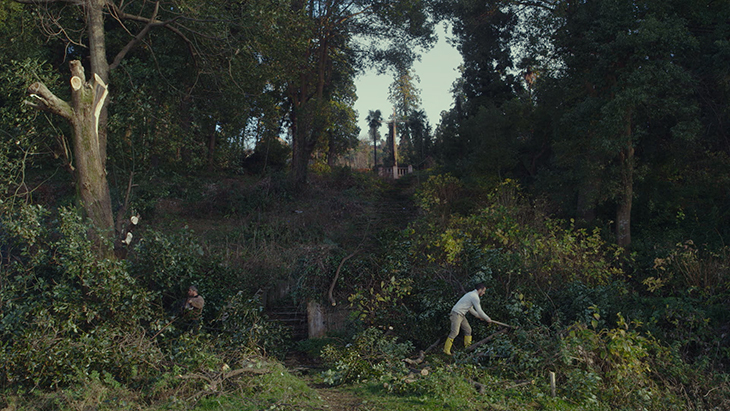
‘Taming the Garden’ (dir. Salome Jashi) is released in cinemas and on digital platforms on 28 Jan.
